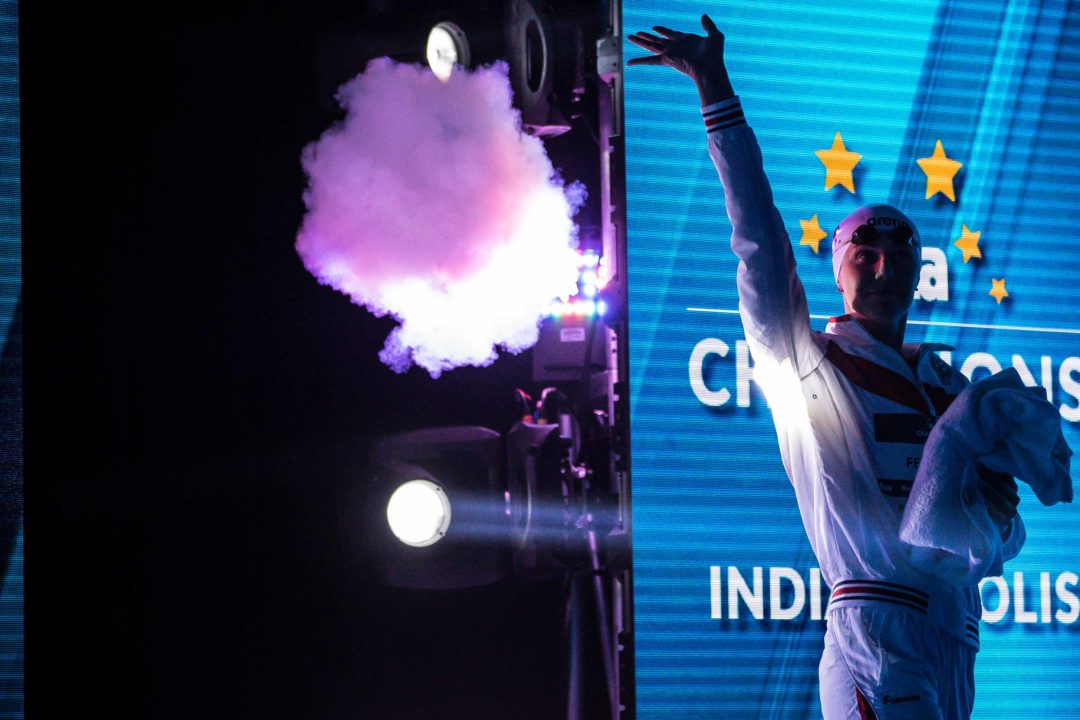Russian women’s swimming team captain Anastasia Fesikova and her husband Sergey Fesikov, both elite international swimmer, have quarantined themselves in a rural area outside of the city of Obninsk, Fesikova said in an interview with the Russian Olympic Committee information service this week.
The swimming power couple, along with their 6-year old son, are making their best effort to continue training in spite of a lack of access to a pool.
Fesikova is one of about 70 athletes who participated in the FINA Champions Series meets that were held in China, the opening epicenter of the global coronavirus pandemic, in mid-January.
She said that there were no signs of what was to come at the meets, located in Shenzen from January 14th-15th, and Beijing, from January 18th-19th.
“It was all calm,” Fesikova recalls. “Only our parents wrote that we should be more careful and protect our health, as the news began to spread that in China people have a severe form of flu. We flew out on January 20 with Chinese airplanes, and we did not see anyone in medical masks. And on the streets then they did not go. And the very next day they announced that there was a very serious epidemiological situation.”
At those meets, Fesikova took 2 silver and 1 bronze medal.
The pair are trying to stay fit on the farm with body-weight exercises, hiking in the countryside, and working in the garden. Fesikov joked “you dig, carry, and then do it again.”
Fesikova had a cold at the end of March, and after taking about a week off to deal with the emotional weight of what was happening, they began to ‘gradually engage’ in general strengthening exercises. The pair also kick a soccer ball with their son to stay active.
Sergey Fesikov took a philosophical approach to the postponement of the Olympics. “I understood that, most likely, it could not happen this summer,” he said about his thoughts before the announcement of a 1-year postponement of the Tokyo Olympic Games. “I look at it this way: we older athletes were given another year to enjoy sports and swimming. I won’t lie – the goal was Tokyo in 2020, and what would happen after that, we didn’t know yet.
“But now the situation has changed. We are taking a long-term perspective regarding sports and swimming. For us, this is an extra year to work and enjoy the sporting life from the inside.”
Fesikov’s comments hint that the end of the two’s elite swimming career might be on the horizon. His wife, Fesikova, will turn 30 on May 8th, Sergey turned 31 in January.
Fesikova said that the shift of a year will change the situation for many swimmers. “I know people who had injuries, and after the Games they had to start treatment. There are older athletes who were about to end their careers. New names will appear throughout the year. In a word: much can change. Now for all, this is a test. Those who want to succeed will have to cope with it all.”
Fesikova did not take a stance on a change in dates for the 2021 World Aquatics Championships, which have been forced due to the overlap with the rescheduled World Championships.
Fesikov won an Olympic bronze medal as part of Russia’s 400 free relay in 2012 and is an 11-time European Champion. That includes individual golds in the 100 free in short course in 2011 and 100 IM in short course in 2015. He was briefly the World Record holder in the 100 IM from November 14th until December 12th, 2009.
Fesikova has an individual Olympic silver from the 2012 Olympic Games, and was the 2011 individual World Champion in the 50 backstroke. She took a break from swimming to give birth to a son in 2014, but returned to swimming in 2015 in time to race at the World Championships in Kazan. She was also the World Record holder in the 100 backstroke in long course for a day in 2009, before Britain’s Gemma Spofforth broke it.
While Sergey Fesikov was not a part of the Russian team at the 2019 World Championships, Anastasia Fesikova was, finishing 11th in the 50 back and 5th in the 100 back.
Pending the resolution of an appeal to the international Court of Arbitration for Sport, the pair, if qualified, would be eligible to compete at the 2020 Olympic Games, albeit under a neutral flag. The Russian Sporting minister has asked international authorities to “turn a new page” on those rules given the coronavirus disruption.
